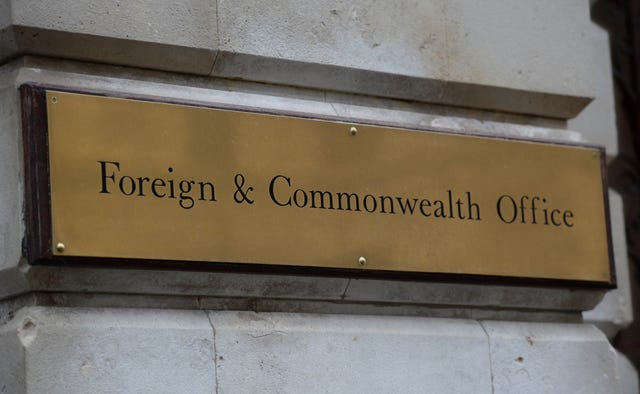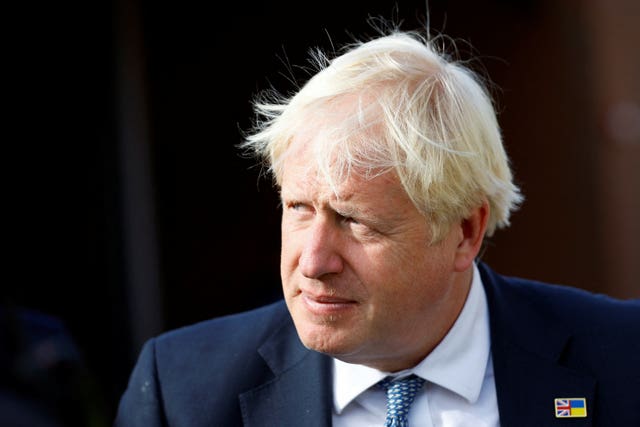Government ignored cries for help during Kabul evacuation – whistleblower
Josie Stewart told judges Afghans seeking resettlement were met with ‘confusion and false hope’ unless they had ‘outspoken or influential UK backers’.

A sacked Foreign Office whistleblower has alleged senior Government officials ignored “cries for help” from people in Afghanistan who were “desperate for rescue” following the fall of Kabul, a tribunal heard.
Josie Stewart told judges email inboxes piled up with requests for help from Afghans seeking resettlement from the war-torn nation, but members of the Afghanistan Crisis Centre had no process for handling them and eventually stopped monitoring them.
Applicants were met with “confusion and false hope” as only those who had “outspoken or influential UK backers” were likely to receive a response, she told the Central London Employment Tribunal.
Ms Stewart, a former senior official at the Foreign, Commonwealth and Development Office (FCDO), was dismissed after an interview with the BBC in which she spoke about her “tragic experiences” working in the FCDO crisis centre in the summer of 2021.
She attended an employment tribunal against the department, in which she is alleging unfair dismissal for making a protected disclosure.
The case will determine civil servants’ rights to make public interest disclosures to the press when “misleading claims” from ministers and civil servants are made to Parliament and the media, Ms Stewart’s lawyers said.

Ms Stewart had previously told the tribunal that top politicians and officials – including then-prime minister Boris Johnson – prioritised “managing political and media fallout” over effective evacuation.
She said officials misled the public and in some instances were deliberately “dishonest”.
In a witness statement made to the tribunal, Ms Stewart said she was “disgusted” that Mr Johnson had “intervened and overruled policy” to allow animals and staff from the charity Nowzad to be evacuated – a claim the prime minister had publicly labelled as “complete nonsense”.
Ben Collins KC, representing the FCDO, said the tribunal was not “an inquiry into the UK’s conduct in the evacuation in Afghanistan”, adding the hearing should not be used as a “campaigning vehicle” by Ms Stewart or her witnesses.
He said Ms Stewart had been made familiar with various internal avenues through which complaints could be raised but had chosen to “ignore all of those options and give a covert interview” with a BBC journalist, who later mistakenly revealed her identity on social media.

“It is blindingly obvious these disclosures were of exceptionally serious failures on the part of the UK government,” he added.
Ms Stewart said that answering Afghans’ “cries for help” was not made a priority of the crisis centre, which dealt with “special cases” of resettlement not covered by other schemes such as the Afghan Relocations and Assistance Policy (ARAP).
She alleged “no-one in any senior position cared about or had any serious intention” to deal with the mounting number of emails from Afghans who had been “left behind” after the final flights left in late August.
“Sustaining communication and providing any information at all to those people who, desperate for rescue, had reached out to the UK for help was not considered important – unless they had outspoken or influential UK backers,” she added.
“This – along with the confusion and false hope created by the chaotic creation and communication of the Special Cases policy – undoubtedly hindered people from making the best decisions for themselves based on a realistic understanding of the situation.”
Another FCDO worker wrote in an internal email that the withdrawal was “the worst, most shambolic crisis” they had worked on, the judges heard.

But Mr Collins said Ms Stewart’s claim that the report was part of a “system that is set up to follow its leaders and protect itself” had been made before it was compiled and was therefore “unfair”.
The judges heard Ms Stewart was “incredibly terrified and traumatised” after her anonymity was compromised and feared she would lose her job.
Mr Collins said her initial reactions to the tweets which revealed her name implied she denied having contacted the journalist.
He also suggested the withdrawal of her security clearances following an internal investigation was justified and without those privileges it was impossible for her to remain employed by the department.
But Mr Millar said the FCDO had attempted a “sleight of hand” by presenting the firing of Ms Stewart as a consequence of her security clearances being revoked and not her whistleblowing.
He said: “The disclosures were the reason the security clearance was removed and the removal of these security clearances was the reason she was dismissed.”
The tribunal will continue until May 20.





